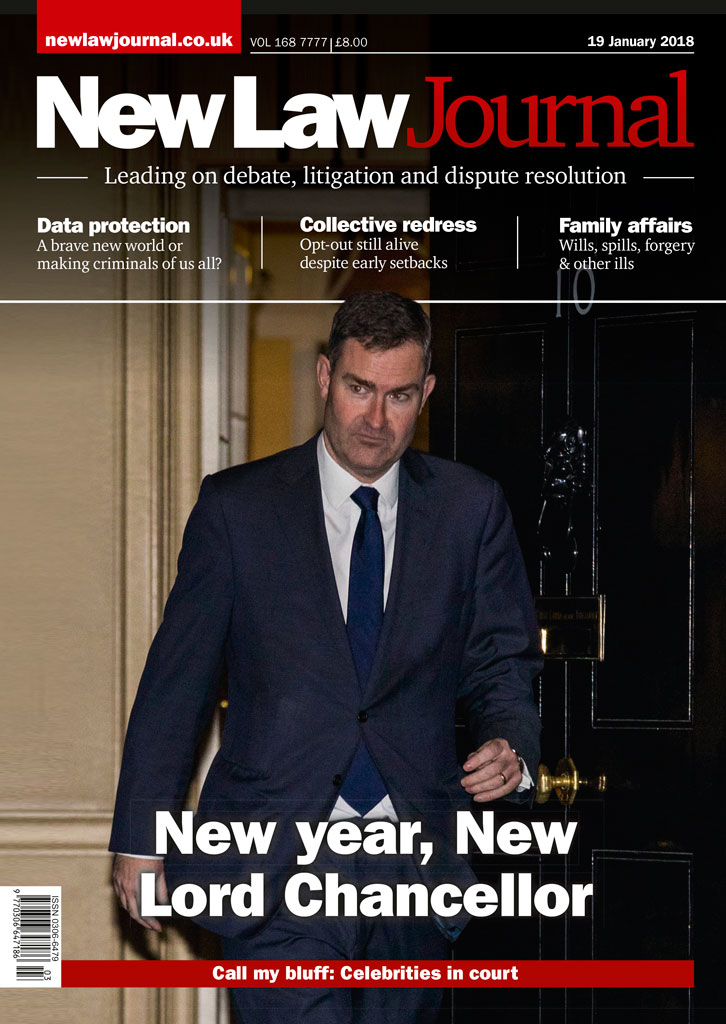
The once great office of Lord Chancellor is now seen as a ‘lowly’ position, with a ‘constant revolving door’ of occupants, David Greene, senior partner at Edwin Coe, writes in this week’s NLJ.
David Gauke became the sixth Lord Chancellor in six years last week. Previously, David Lidington spent six months in the role, Liz Truss 11 months and Michael Gove one year and four months. Chris Grayling spent two years and eight months as Lord Chancellor.
While welcoming a qualified lawyer to the role Greene said: ‘There was a time when the appointment had a degree of permanence about it. Now that has gone.
‘The Lord Chancellor is seen as just another minister and by all the evidence, a pretty lowly one. The result is that there is a distinct lack of continuity.'










